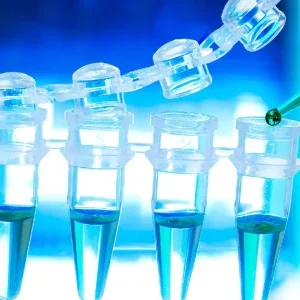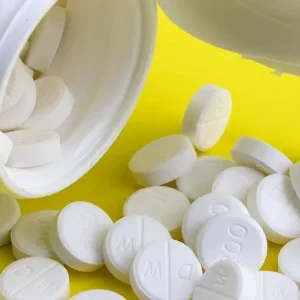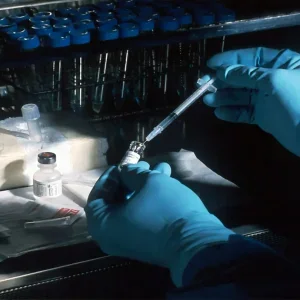
British drugmaker GSK has revised its shingles vaccine partnership with Chinese biotechnology company Chongqing Zhifei Biological Products (Zhifei) in mainland China.
Zhifei has an extensive network covering more than 30,000 vaccination points across China and has a strong track record of driving access to innovative vaccines in China.
In October last year, GSK signed an exclusive agreement with the Chinese biotech company to jointly promote GSK’s shingles vaccine Shingrix in China, initially for three years.
Zhifei held exclusive rights to import, distribute and co-promote the vaccine in mainland China, from 2024 to 2026, with an option to extend for an additional eight years through to 2034.
Under the revised agreement, Zhifei will purchase volumes of Shingrix worth up to £2.3bn over the coming six years, through 2029.
Zhifei has also agreed to collaborate with GSK, on the commercialisation of a respiratory syncytial virus (RSV) vaccine in mainland China, for an initial period of 10 years.
Shingrix (Recombinant Zoster Vaccine or RZV) is a non-live, recombinant subunit vaccine candidate, indicated for preventing shingles in adults aged 50 years and above.
Shingles is also known as herpes zoster and is caused by a reactivation of the varicella-zoster virus (VZV), which also causes chickenpox.
GSK chief commercial officer Luke Miels said: “This revised agreement with Zhifei puts our collaboration on a sustainable footing, managing challenges in the macro environment in the near-term, and helping us to reach even more Chinese people with our innovative adult vaccines over the long term.”
In a separate development, Muna Therapeutics (Muna) has announced a research alliance with GSK to identify and validate novel drug targets for Alzheimer’s disease (AD).
Muna is a biotechnology company focused on developing innovative therapeutics for neurodegenerative diseases, leveraging its MiND-MAP platform.
The platform applies spatial transcriptomics to brain samples from AD patients, cognitively resilient individuals, healthy controls, and centenarians, regardless of cognitive impairment.
Under the terms of the partnership, Muna will receive €33.5m in upfront payment, up to €140m per target in milestone payments, along with tiered royalties on net sales of products.
Muna will expand and enhance its existing MiND-MAP dataset and will lead the identification and validation of new Alzheimer’s disease targets.
GSK will lead drug development and assume responsibility for preclinical activities, clinical development, manufacturing, and commercialisation.
GSK SVP and respiratory/immunology R&D global head Kaivan Khavandi said: “By applying spatial multi-omics to unique patient phenotypes, Muna’s MiND-MAP platform is able to determine the genetic and cellular basis of progression and resilience in neurodegenerative diseases.
“The alliance exemplifies our discovery ethos, to utilize advanced data and platform tech to identify high-confidence, human-data-derived, causal targets, which we can support with GSK’s scale and expertise in clinical development and commercialisation, to bring desperately needed new therapeutic solutions in Alzheimer’s disease.”
Under the collaboration, the two companies will assess postmortem human brain samples with spatial transcriptomics and other approaches to identify potential new drug targets.
They will use Muna’s deep expertise in mapping the brain’s response to pathological protein aggregates and its MiND-MAP platform to identify mechanisms underlying brain resilience.
Also, the collaboration will validate the candidate drug targets using Muna’s humanised cell and animal models, supported by insights from patient tissue and biofluid samples.
Muna CEO Rita Balice-Gordon said: “Our agreement marks a pivotal moment in Muna’s evolution and in the broader Alzheimer’s research landscape.
“By combining GSK’s commitment to breakthrough science with our MiND-MAP platform’s ability to deliver novel insights into brain resilience, we aim to transform the landscape of drug discovery for neurodegenerative diseases and bring new hope to millions of patients worldwide.”






